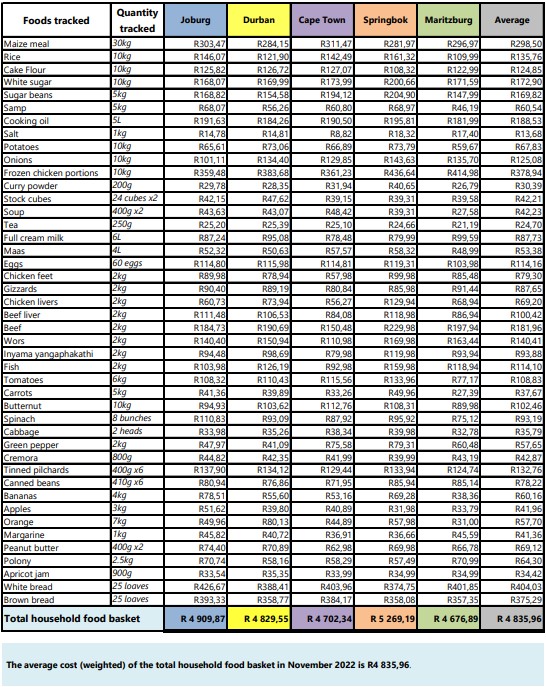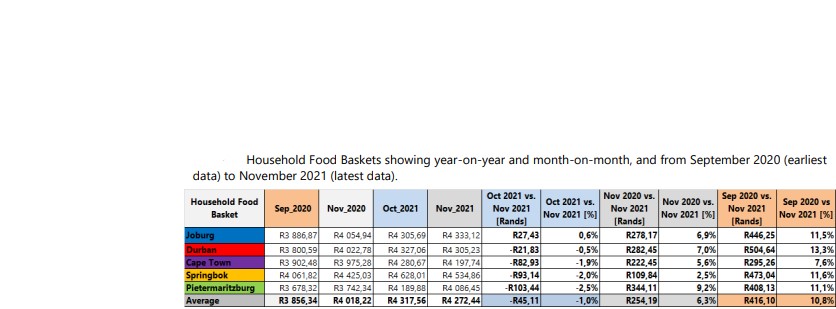Agriculture
Those in smaller towns pay more for average food basket─── BAMBATHA GIKO 08:33 Wed, 21 Dec 2022

Towns far from where food is produced are more likely to fall prey to the volatility of fuel and food prices.
The latest statistics from the Pietermaritzburg Economic Justice and Dignity (PMBEJD) group show that the household food index of a small Northern Cape-based town, Springbok, has increased by a 16,2% from last year November to 2022.

This means that people in Springbok, with a grocery bill of R4500 in November 2021, would in 2022 — due to food inflation — pay over R5 200, which is significantly higher than the average household's food basket in cities such as Cape Town or even Durban.

Programme Coordinator at the PMBEJD group, Mervyn Abrahams, said this is due to the cost of logistics as towns that are far removed from where the food is generally produced or manufactured, tend to pay extra because of the transportation costs.
Abrahams said food prices are also likely to remain at their current levels for the foreseeable future due to load-shedding, which is a contributing factor to the burden on input costs. This is due to the fact that load-shedding has a significant impact on the productivity of farmers, with AgriSA reporting the issue as a major threat to South Africa’s food security.
“We have not seen significant decreases in the price of fuel. That too is a major contributor, particularly diesel, because diesel is mainly used on the farms as well as in the transportation of food across the country,” said Abrahams.
Abrahams noted that South Africa’s food is mainly produced by big commercial enterprises which are often far away from the table where food is consumed. In order to decrease food prices, food needs to be grown closer to cities and small towns. He suggests the government should prioritise investments in small-scale farmers and informal food networks in those areas.
Abrahams added another solution that might dampen the blow to consumers’ pockets is if the country had a functioning railway system to transport food throughout the country. However, this might still prove to be a problem as this requires electricity which remains a problem in the country due to the ongoing issues of load-shedding.














